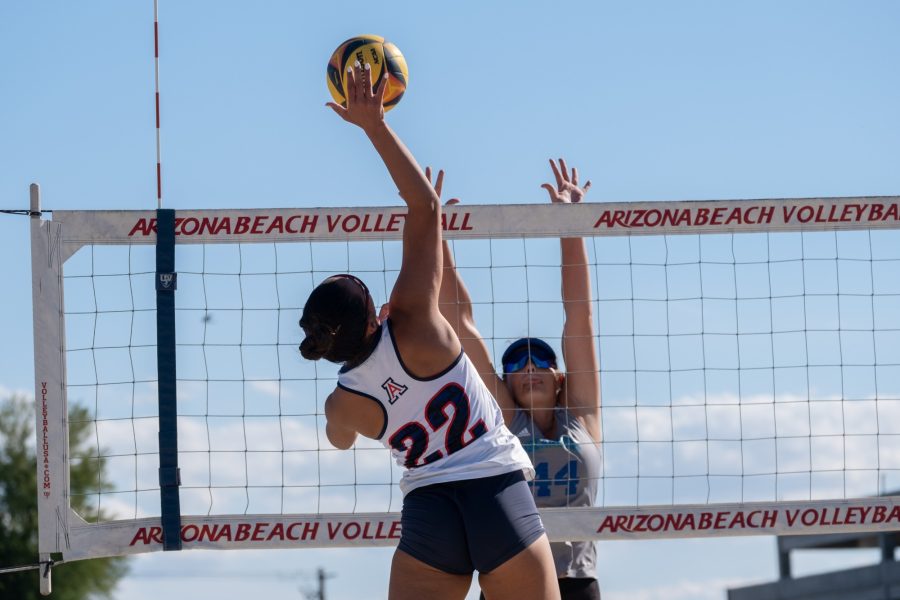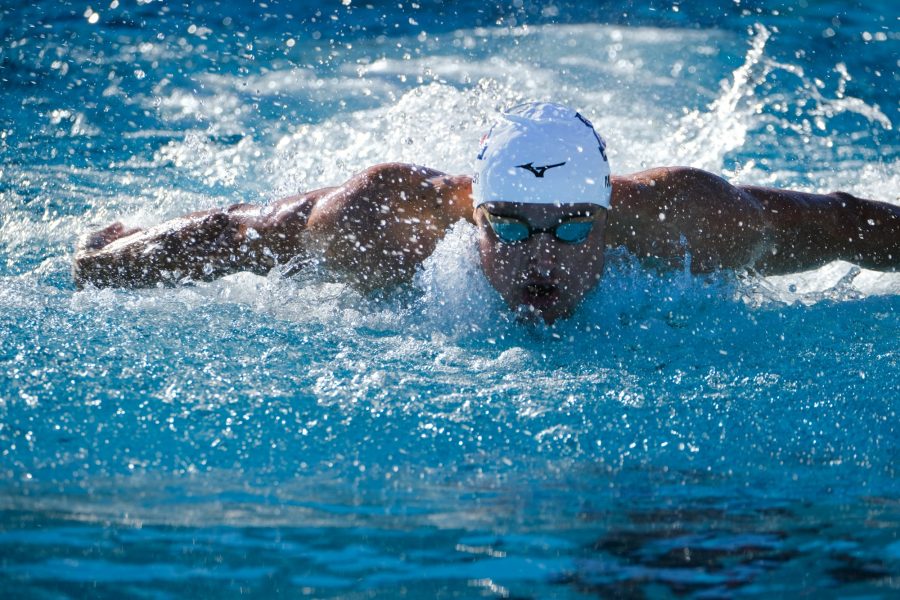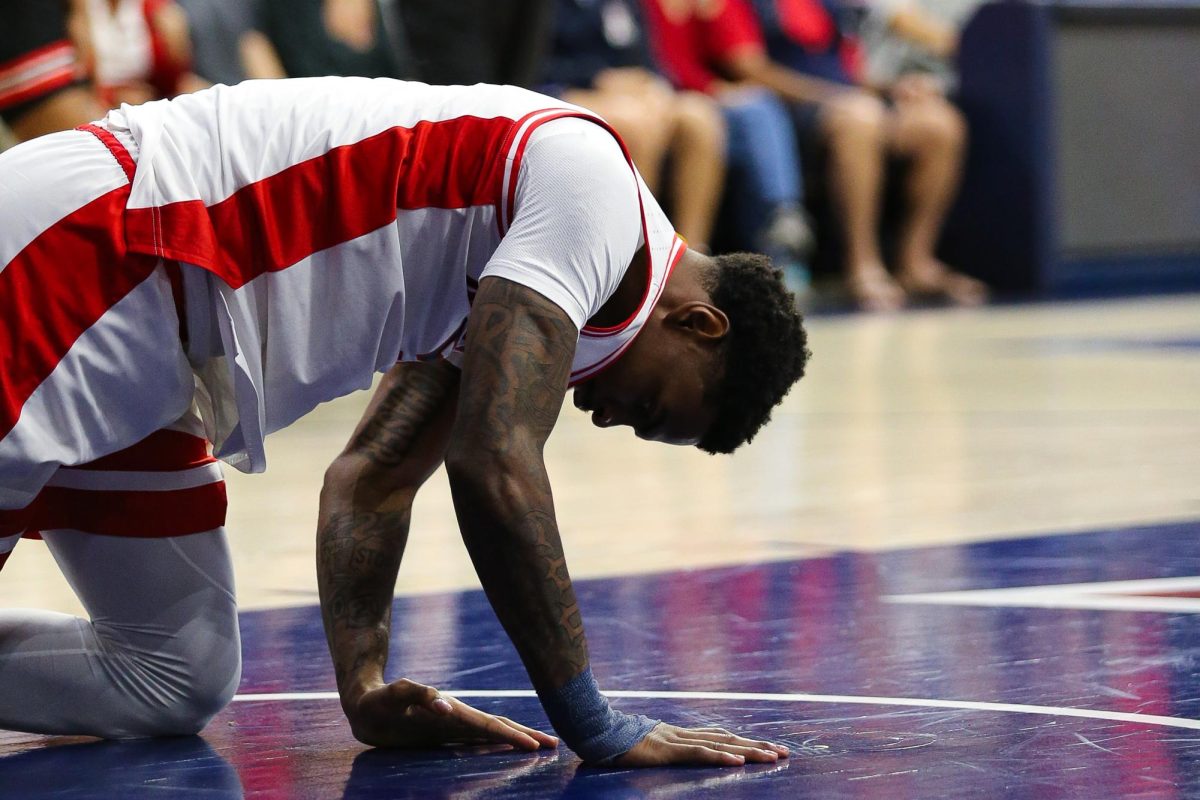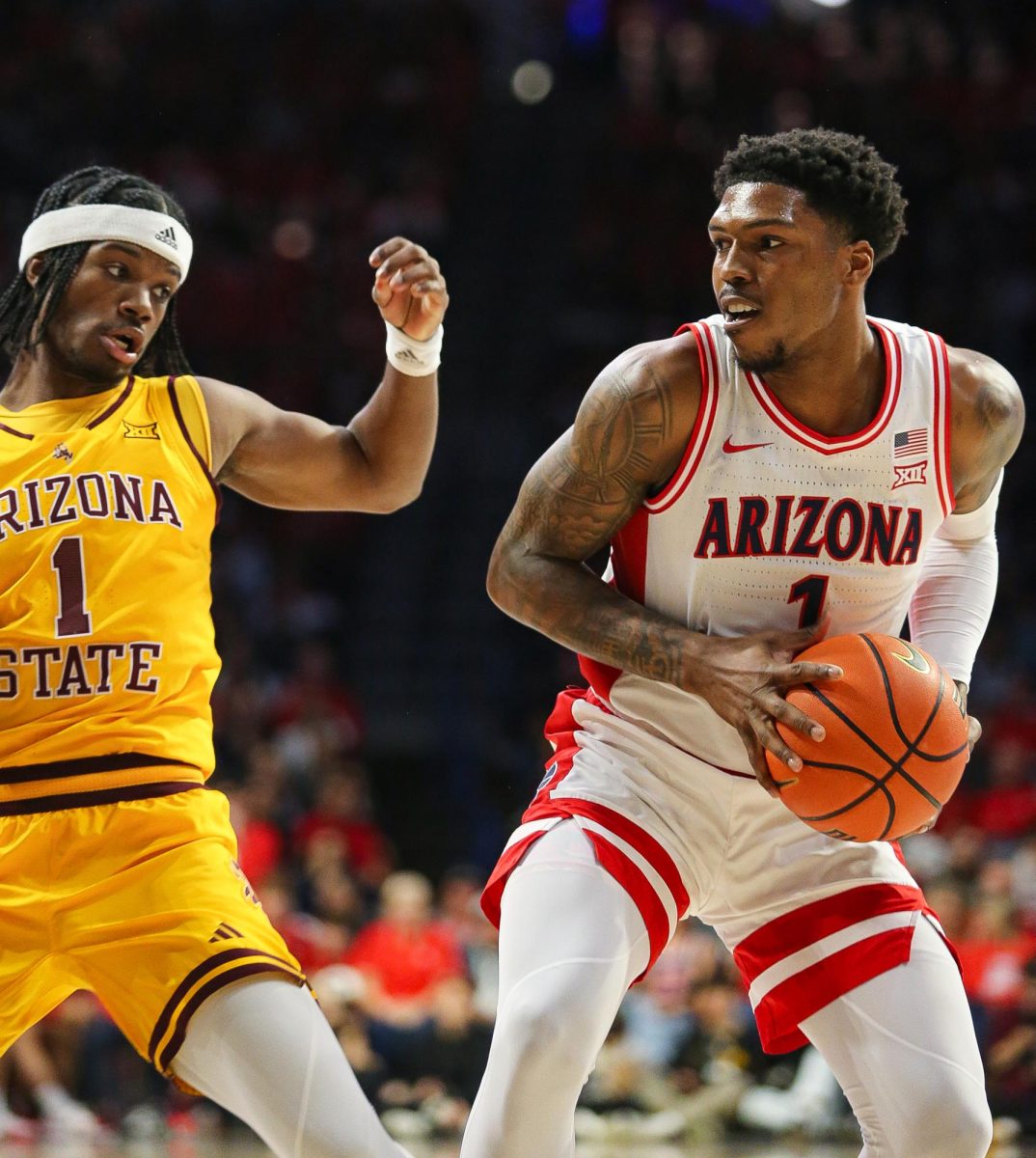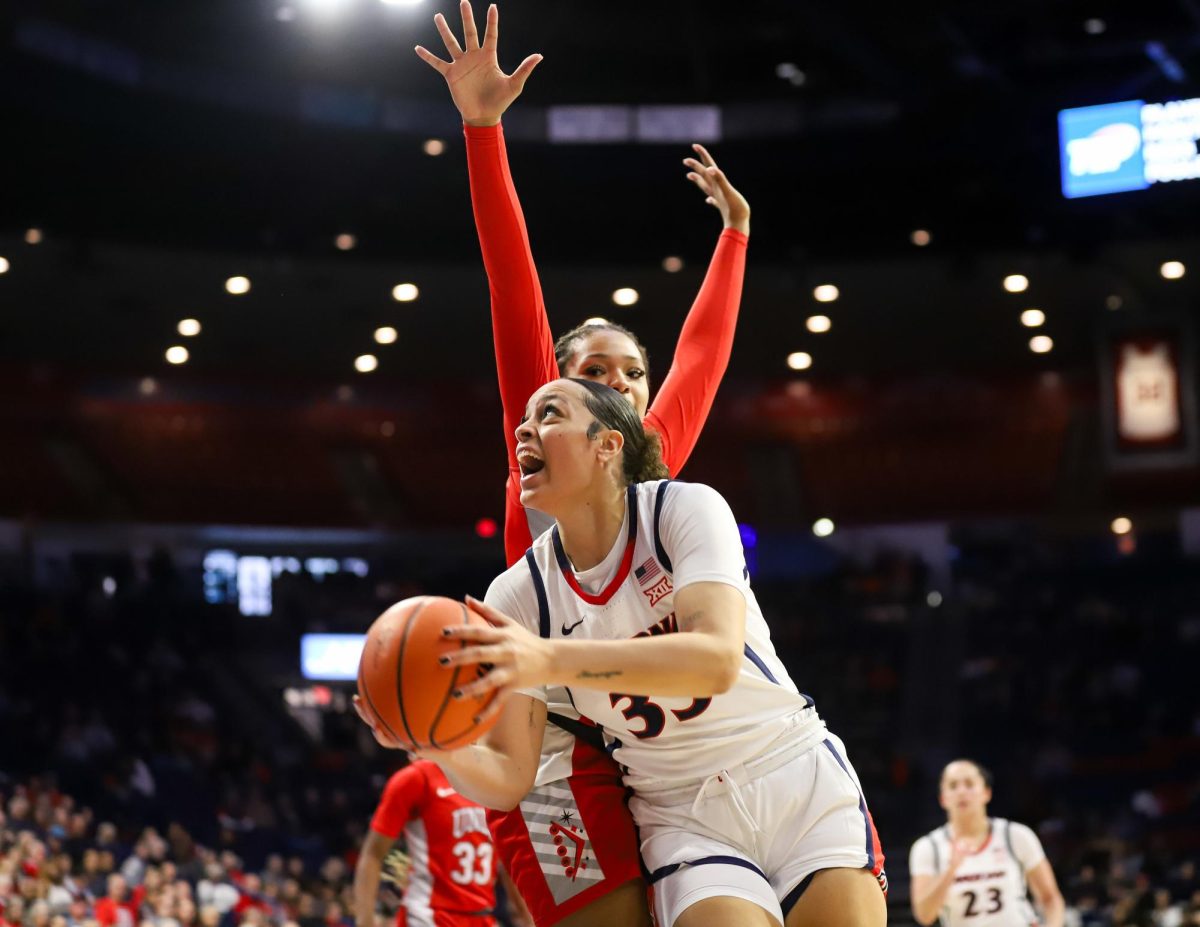Most college athletes have played their sport since they were children, and as they continue on to the collegiate level, that sport becomes something that defines them. So when four years of eligibility end, transitioning from student-athlete to student isn’t always easy.
But senior gymnast Molly Quirk said she’s excited for her future and to finally have free time after 16 years of competitive gymnastics.
“I don’t think you realize that, because I’ve been doing gymnastics since I was 5,” Quirk said. “It’s never been weird for me to go school, gymnastics, weights and then come home at 8 o’clock at night. So now, coming home at 2 o’clock, I’m like, ‘I don’t know what to do with the rest of my afternoon!’”
Quirk’s dedication led her to become a major contributor to Arizona gymnastics for the last four years. She started out as an all-around gymnast her freshman season and earned First Team All-Conference for all-around.
Her junior year, she was Second Team All-Conference, and her career highs for each event are 9.85 and above, including 9.9 for beam and floor. She competed in every single meet for three years straight until a fractured hand this season led to surgery in late February.
“If you put a value on a single athlete on your program, she’s one of the best values and one of the best people we’ve had,” said Arizona head coach Bill Ryden, “because all you have to do is add up all that she’s done: her total points she’s scored for the program, how many routines that she’s saluted, as well as all the other stuff she’s done while she’s here.”
Quirk said she is looking forward to using her newfound free time to volunteer and intern in a lab. Quirk is studying molecular and cellular biology and hopes to become a researcher someday. In her senior year of high school, she worked in a pharmaceutical lab and found it was her passion.
“I think she is going to be very successful in the real world,” Ryden said. “She’s very motivated. She’s very focused on what she wants to do, and she’s also incredibly stubborn, so she won’t stop until she gets what she wants, which is a great thing in the real world.”
But Quirk acknowledged that the end of her competitive gymnastics career is bittersweet.
“Gymnastics has just been a huge part of my life,” Quirk said. “Sometimes it’s a pain in the butt and sometimes there are days when you feel sore or hurt, but it’s still just fun to go into the gym and do gymnastics and compete.
“Competing is the most fun aspect, just going out there and your team being so excited for you. I think that’s what I’m going to miss most. Being able to salute a judge and when you finish your routine — that feeling you get when you know you rocked it for your team — that’s just an amazing feeling.”
Quirk’s drastic schedule change will take some getting used to, but she will always be welcome in the gym and said she plans to cheer on the team at every meet next year.
Quirk can leave the sport with no regrets, Ryden said.
“She’s definitely my type of an athlete — truly disciplined, committed, not out doing things you don’t want your athletes to do and stuff like that,” Ryden said. “So if you lead by example, she certainly has been able to set an excellent example.”




